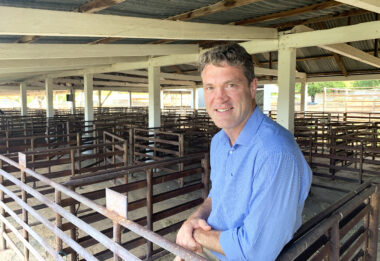New Oxfam polling published today shows consumers don’t trust Australian fashion brands making claims about the treatment of overseas garment workers in their supply chains, as the industry recorded a staggering $2 billion in expected profits and Bangladeshi workers campaign for better wages.
As Australians prepare to hit the shops to start Christmas shopping on Black Friday, Oxfam is calling out brands such as Uniqlo, Jeans West and Best & Less for failing to take steps to break the cycle of poverty for the women making their clothes, with consumers backing in the calls.
Polling found more than 80% of Aussie clothes buyers agree that clothing brands should be more transparent about how much they pay and how they treat garment workers in their supply chain.
It also found:
- 7 in 10 (71%) Aussie clothes buyers think that clothing brands in Australia exaggerate or mislead consumers (intentionally or unintentionally) about how overseas garment workers in their supply chain are treated.
- 3 in 4 (76%) Aussie clothes buyers say they would be willing to pay more for a clothing item if they knew that the money would go towards paying living wages for the garment workers.
- On average, Australian consumers think that 17% of the cost of a typical clothing item should go towards the garment worker who makes it as part of their wage. Previous research found that on average, only 4% goes towards the worker.
Oxfam has today released a ‘Christmas Wish List’ that identifies which brands are falling behind and how, against three key markers showing their commitment towards paying a living wage.
A living wage means enough money is earned in a standard work week to cover basic essentials for a family including nutritious food, housing, healthcare, clothing, transportation, energy, water, childcare, and education, as well as some discretionary money and provision for unexpected events.
One of the key actions Oxfam is urging from brands is to enhance transparency, emphasising that sharing up-to-date information about where clothes are made empowers consumers, workers, and unions to hold companies to account. While many global fashion companies have embraced this practice, Just Group, Modibodi, and Zara have opted to keep the location of their factories hidden. Meanwhile, although they still have work to do in other areas, H&M and Kmart get a tick on transparency.
Oxfam also wants brands to include wages as an itemised part of price negotiations, which is the most effective way to address aggressive negotiations and an important step toward the payment of a living wage. Best & Less, Uniqlo and Jeans West have failed to take this step. In fact, Jeans West doesn’t even have a current credible commitment to pay a living wage (the only brand still lagging behind in this area), although it has shown some improvement from last year.
Oxfam Australia Chief Executive Lyn Morgain said the polling shows consumers back Oxfam’s calls and take this issue seriously.
“This polling is evidence of what we have long known – that ethical considerations are increasingly a significant factor in consumers’ purchasing decisions. That’s why taking action now is not only in the interest of workers, but in the interest of these companies’ bottom lines,” said Ms Morgain.
“Garment workers are currently struggling to afford basic necessities like food, power and housing for themselves and families, which has been further exacerbated by the cost-of-living crisis. We stand in solidarity with the Bangladesh ready-made garment workers and trade unions' recent demand for a minimum wage that meets their basic needs.
“Ultimately, brands hold the power and responsibility to ensure better lives for the workers who make their clothes - including by paying a living wage - yet they are still falling short.
"Oxfam's call for transparency and urgent action echoes the sentiments of concerned consumers, who want to support garment workers in their efforts to break free from the cycle of poverty. We are united in our demands and envision a future where fashion is fair.”
For interviews, contact Lily Partland on 0418 118 687 / [email protected]
Notes to editor
All polling figures, unless otherwise stated, are from YouGov. Total sample size was 1023 adults. Fieldwork was undertaken between 6th - 11th April 2023. The survey was carried out online. The figures have been weighted by age, gender and region and are representative of all Australian adult clothes buyers (aged 18+).
Polling published by Oxfam earlier this year found:
- An overwhelming 65% of clothing buyers actively taking into account ethical factors when making a purchase.
- Nearly one-third of clothes buyers explicitly consider the human rights of garment workers in their purchasing decisions.
- Younger generations such as Gen Z, Millennials, and Gen X are far more likely to claim ethical consciousness when it comes to purchasing clothing, with over half of each generation likely to make ethical considerations when buying clothes, compared to just 35% of Baby Boomers.
Clothing industry profits data sourced from IBIS World ‘Clothing Retailing in Australia’ August 2023 report.
A Deloitte Access Economics and Oxfam report estimates that on average just 4% of the price of a piece of clothing sold in Australia goes towards the wages of the workers who made it.
Despite tens of thousands of garment workers taking to the streets in protest earlier this month, the Bangladeshi Ministry for Labour and Employment indicated it is very likely the new minimum wage will be set at 12,500 taka (AUD $176) a month, which is significantly lower than the 23,000 taka (AUD $324) a month that workers’ unions say is the minimum needed to cover basic living costs. So far, three workers have been killed while protesting for their rights.


